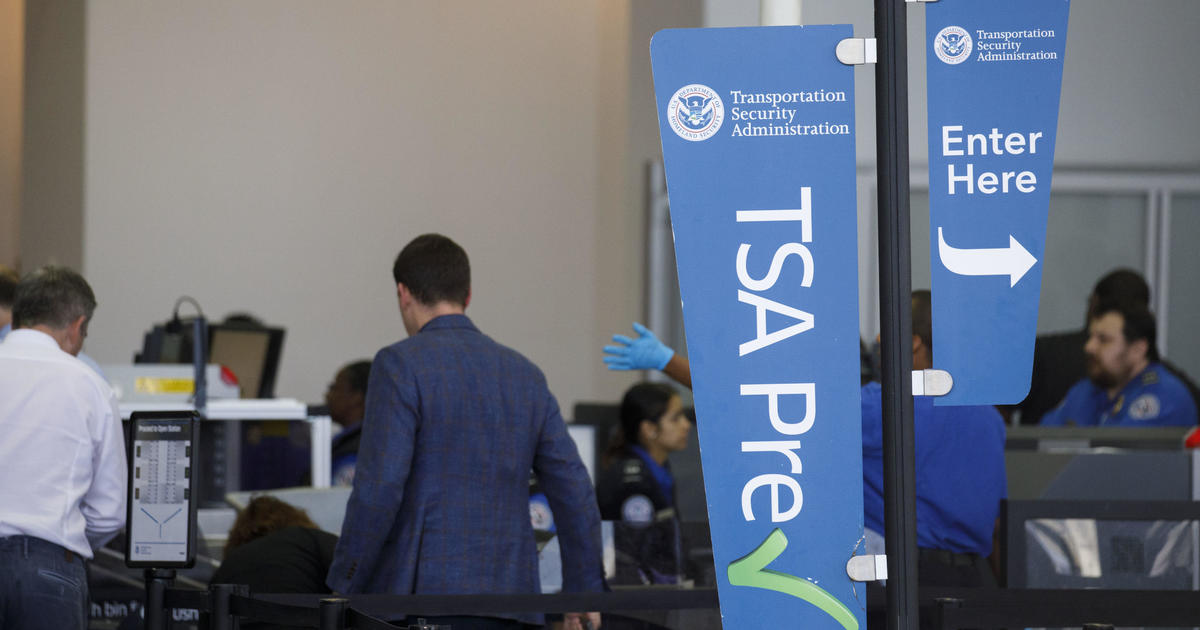Transcript: Author David Sanger on "Face the Nation," April 21, 2024
The following is a transcript of an interview with David Sanger, New York Times correspondent and author of "New Cold Wars," that aired on April 21, 2024.
MARGARET BRENNAN: And we're joined now by New York Times White House and national security correspondent, David Sanger. His latest book, "New Cold Wars," is out now. David, good to see you again.
DAVID SANGER: Great to be with you, Margaret.
MARGARET BRENNAN: Where do we begin? The world truly is on fire. And one of the things I like about your book is, you write, going all the way back to listening to the Nixon-Kennedy debates, and hearing those candidates hash out America's role in the world and geostrategy. In this election, we don't even know if the candidates will have a debate, meanwhile the world's on fire. How do the American- members of the American public need to think about the global competition the United States is in the middle of?
DAVID SANGER: Well, it's a very different competition than what we had in the Cold War. You know, those Nixon-Kennedy debates, were, you know, at the height of the moment of a US contest against the Soviet Union, which was terrifying and nuclear. But there was a simplicity about it, you know, there was a predictability about it. We understood who controlled their nuclear weapons, they understood who controlled ours, we knew who to call. The new cold wars are quite different, Margaret. We've got Russia and China coming together in a periodic partnership. I wouldn't say it's a full alliance. We have other players like Iran and North Korea, as you were discussing with earlier guests, supplying them, becoming sort of what the Iranians call an "Axis of Resistance" to the US. It is a far more volatile, I think, far more dangerous period than we had, even then. And yet, as you point out, our ability to discuss it as a nation has somewhat degraded. You watch those Kennedy-Nixon debates and put aside who was sweating and who looked young--
MARGARET BRENNAN: --Right.
DAVID SANGER: And vigorous and all that. It was an incredibly sophisticated argument largely about nuclear deterrence. I'm afraid that we're not having that incredibly sophisticated argument today, you know, 60 years- more than 60 years later. But the vote yesterday, which you've been discussing about Ukraine, at the end of the day, turned out to be a fairly overwhelming vote in favor of the US pushing against the Russians in Ukraine and perhaps beyond.
MARGARET BRENNAN: Certainly, overwhelmingly yes for Democrats. A bit split for Republicans--
DAVID SANGER: --A majority of Republicans voted- voted against but it passed, it passed--
MARGARET BRENNAN: --It passed--
DAVID SANGER: --Comfortably.
MARGARET BRENNAN: It did. And I- it's just- I think it's such an interesting point you make, though, in sort of changing how we think about competition with Russia and China. We learned Friday that the US is likely to lose a significant counterterrorism base in the African country of Niger, because the government demanded troops withdraw. I think a lot of Americans didn't even know that there were a 1000 US troops there fighting or working in the counterterrorism space. Russia is moving in.
DAVID SANGER: That's right.
MARGARET BRENNAN: China is getting and carving out a large amount of influence in Africa. What are the fronts in the new cold war?
DAVID SANGER: Well, there are a couple of different ones. You pointed out one in Africa, also an area that China has been wiring up with Huawei equipment and so forth. So we are concerned, you know, rightly so that the US in not having a competitor straight on to put in 5G equipment may be losing the opportunity to help bind the continent together. In the book, I- I take you to the Solomon Islands, a place the US fought for in World War II, and scored a big victory, but now has basically moved over into China's camp. There is still some contest underway. But to answer your question more broadly, if you believe that there is something of a new iron curtain coming down, a place where you're going to divide the US, the NATO nations against China, Russia, Iran, others, it's somewhere in that borderland between Ukraine and Russia. And that's why the- the bill that went through Congress was so important. I don't know if it's enough to turn the tide. The Ukrainians may have lost so much time and ammunition here that it may be too late. But certainly had it not passed, that was pretty much, by the judgment of the CIA Director Bill Burns and others, going to be the end of the contest. So Russians almost certainly would have surged forward.
MARGARET BRENNAN: And China has make- made clear they have a stake in Russia, winning in Ukraine. It is--
DAVID SANGER: That's right--
MARGARET BRENNAN: --Its competition.
DAVID SANGER: And if we had those debates, again, as you say, who knows if we will. I think the most interesting--
MARGARET BRENNAN: --Or even those interviews--
DAVID SANGER: --Or even- that's right.
MARGARET BRENNAN: Substantial interviews with conversations about national security interests of America, I mean--
DAVID SANGER: --That's right, and- and--
MARGARET BRENNAN: --We should.
DAVID SANGER: And, you know, President Biden has been reluctant to have, you know, major sit down interviews, at least with the print organizations. But I think if we did have those interviews, I think one of the big questions is, what is your plan to get in the midst of the Russia-China combination.
MARGARET BRENNAN: Yeah.
DAVID SANGER: Because the core of what Nixon and Kissinger were doing in the early 70s, in recognizing China was to prevent Russia and China from coming together.
MARGARET BRENNAN: You also make this interesting point about the dynamic that's so different given, first of all, they're so economically intertwined the United States and China, but also the business community and technology and the role it plays in this version of competition. A top US cyber official told you, companies, not the US government, have all the insight these days. How do we know when an attack is coming?
DAVID SANGER: Yeah, the book opens with the days running up to the war in Ukraine. And while there were certainly lots of indicators coming from American satellites, and signals intelligence, and so forth. In the end, one of the key indicators of the Russians were getting ready to roll came from Microsoft, whose engineers were noticing that malware that had been placed by the Russians on Ukrainian government agencies were being activated and sent a notice to their- their channels, which ultimately went to the White House. At the end of the day, what kept Ukraine running was some combination of Microsoft, Amazon moving all of their data to the cloud and then Elon Musk coming in and providing Starlink so they could communicate to that cloud.
MARGARET BRENNAN: Incredible.
DAVID SANGER: Something we never saw in the old cold wars.
MARGARET BRENNAN: David, it's a fascinating read. It's good to see you in person, and we'll have to leave it there.
DAVID SANGER: Thank you.



